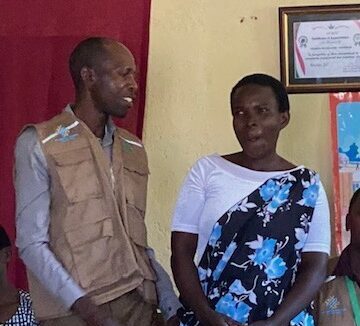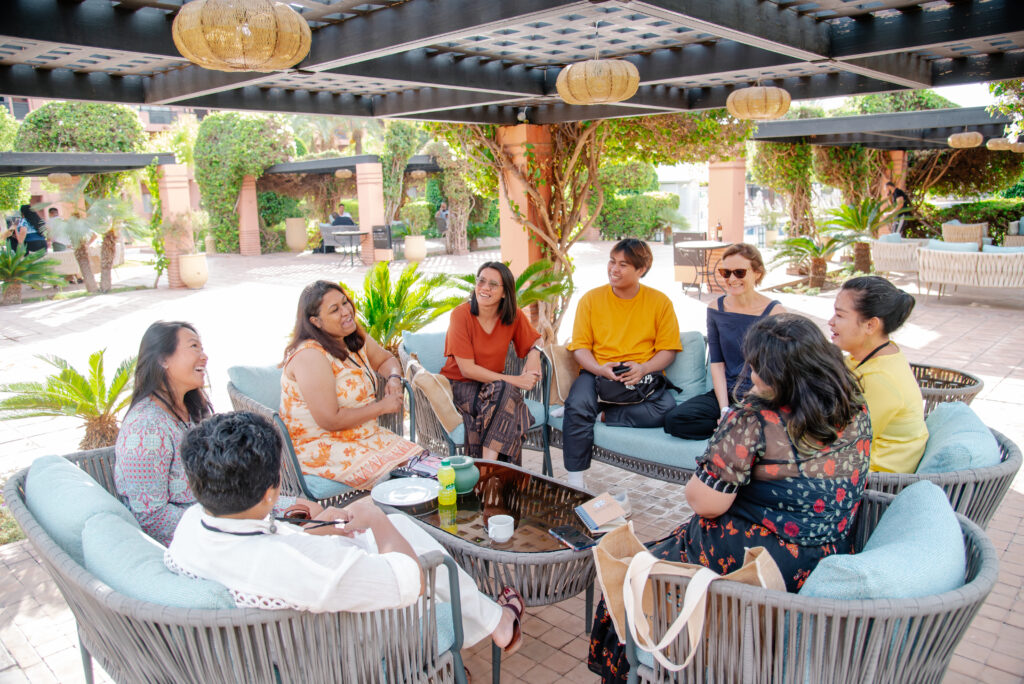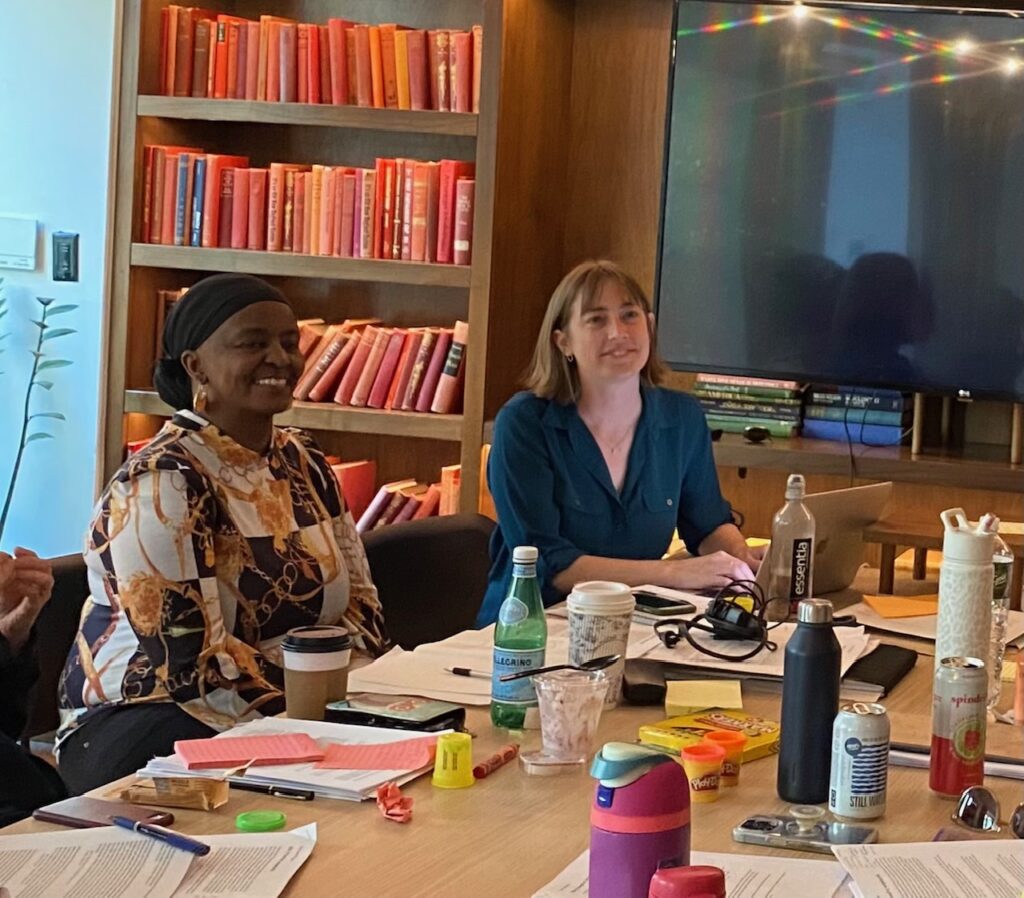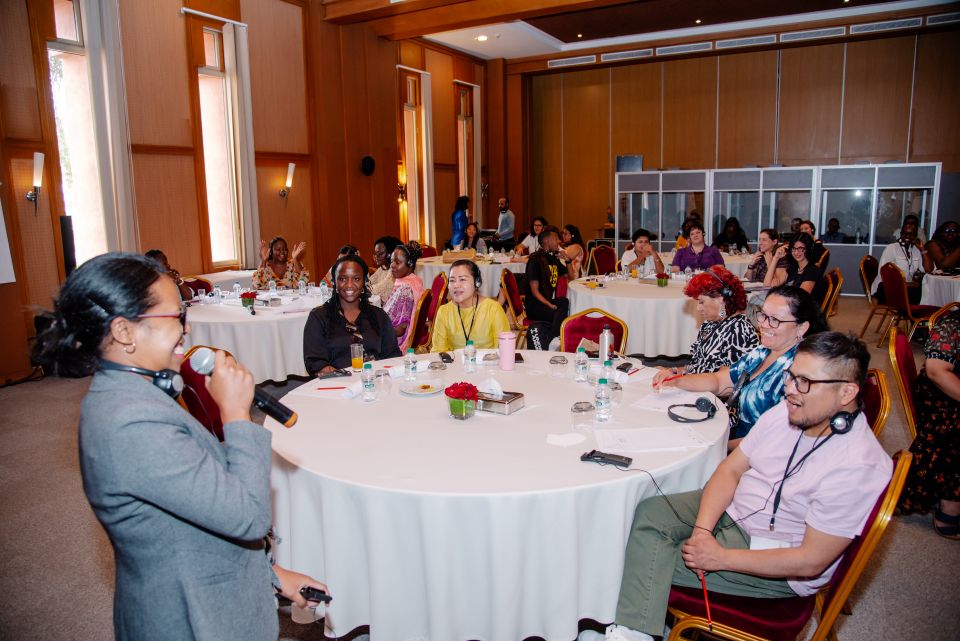Let This 16 Days of Activism Bring On An Epoch of Transformation

As we open our annual vigil today, marking this year’s 16 Days of Activism against Gender-Based Violence, it seems clear that GBV has reached pandemic proportions.
In the last two months alone, we’ve witnessed a brutality rarely seen or chronicled, with Hamas’s October 7 massacre of innocent civilians in southern Israel, with particular horror elicited from the sadistic rape, torture, mutilation, and murder of women, as recounted by rescuers and surviving witnesses still traumatized by what they saw.
Ever since, Israel’s massive retaliatory military response has inflicted different forms of murder, torment, and abuse on innocent women — this time on Palestinian women, who have lost their children, parents, and siblings, their homes, and even their unborn children and access to appropriate health care in this onslaught, with the elderly, children, and pregnant women most at risk. According to a gynecologist there, pregnant women “are arriving at the hospital with third- or fourth-degree burns and missing limbs” and enduring C-sections without anesthetic; after birth, they risk “malnourishment and dehydration, the absence of safe shelters and hygiene and the lack of clean water needed for feeding babies formula if necessary,” according to the United Nations Population Fund (UNFPA).
Beyond the Middle East, in Sudan, where the continued raging war has already forced nearly 4 million innocents from their homes, UNFPA has reported that women and children constitute almost 90 percent of those uprooted. With this displacement has come an alarming increase in gender-based violence, as was recently noted by UN High Commissioner for Human Rights Volker Turk in a WHO report.
“We are receiving shocking reports of sexual violence against women and girls, including rape,” Commissioner Turk decried. “And in the aftermath of such cruelty and brutality, the women and girls are left with little or no medical and psychosocial support. There must be zero tolerance for sexual violence. All perpetrators must be held accountable.”
And of course in Ukraine, the disproportionate impact on women of that vicious war, now deep into its second year, only deepens. Amnesty International Secretary General Agnes Callamard called it like it is: “Time and time again, women bear the brunt of war’s brutality,” noted Callamard, formerly the UN Special Rapporteur on Extrajudicial, Summary, or Arbitrary Executions. “They are consistently on the frontlines of conflict — as soldiers and fighters, doctors and nurses, volunteers, peace activists, carers for their communities and families, internally displaced people, refugees, and too often as victims and survivors.
“Russia’s full-scale invasion in Ukraine is no different,” Callamard continued. “Women confront increased sexual and gender-based violence and perilous health conditions, while being forced to make life and death survival decisions for their families. At the same time, women are often excluded from the decision-making processes and their rights and needs remain unprotected and unmet.”
Active conflict is not the only circumstance where violence against women, physical and psychological, is exacting an alarming toll. In Afghanistan, the crushing of dreams, forced marriage, despair, and domestic violence, all exacerbated by the Taliban’s takeover in August 2021, have led many women to resort to suicides, as Zahra Nader of Zan Times, in partnership with The Fuller Project, has reported.
Another factor triggering the increased incidence of violence against women and girls is climate change.
Indeed, “80% of those displaced by climate change are women,” asserted former UN High Commissioner for Human Rights Michelle Bachelet, who went on to point out that women environmental human rights defenders in particular, many of whom are young and represent Indigenous and other marginalized and fenceline communities, are putting their lives at risk. “They are criminalized and silenced,” the former High Commissioner said. “They are threatened and stigmatized. They are at additional risk of gender-based violence. And many are even killed.”
A recent review of the research literature in The Lancet found a direct correlation between extreme weather events and spikes in “gender-based violence experienced by women, girls, and sexual and gender minorities,” which the authors describe as one of “the more veiled consequences” with “myriad global public health implications, including physical injury, unwanted pregnancy, exposure to HIV or other sexually transmitted infections, fertility problems, internalised stigma, mental health conditions (e.g., depression, anxiety, suicidal ideation, and post-traumatic stress disorder), and ramifications for children (including those born out of rape).”
These researchers and others say more data are needed. The Lancet authors call in their review “for high-quality evidence from large, ethnographically diverse cohorts to explore the effects and underlying driving factors of GBV during and after extreme events.”
Gender-based violence is now ubiquitous. And as The Lancet authors’ framing makes clear, it will not be easily undone. “Increased GBV has been observed in both natural and human-caused crises and disasters, due to socioeconomic instability, structural power inequalities, health-care inaccessibility, resource scarcity, breakdowns in safety and law enforcement, and increases in (perceived) stress.”
With such complex, multilayered, societal risk factors, gender-based violence will not be stopped in #16Days, or any time soon. Yet 32 years after the first #16Days campaign, it’s beyond time for more than banners and hashtags; we need to look long and hard at ourselves, at the poisonous inequities we continue to allow to permeate our economy and politics, and we must commit ourselves to meaningful introspection, healing, outreach, reparative work, and transformation at the societal level, if we are ever to succeed in getting the violence to stop.




